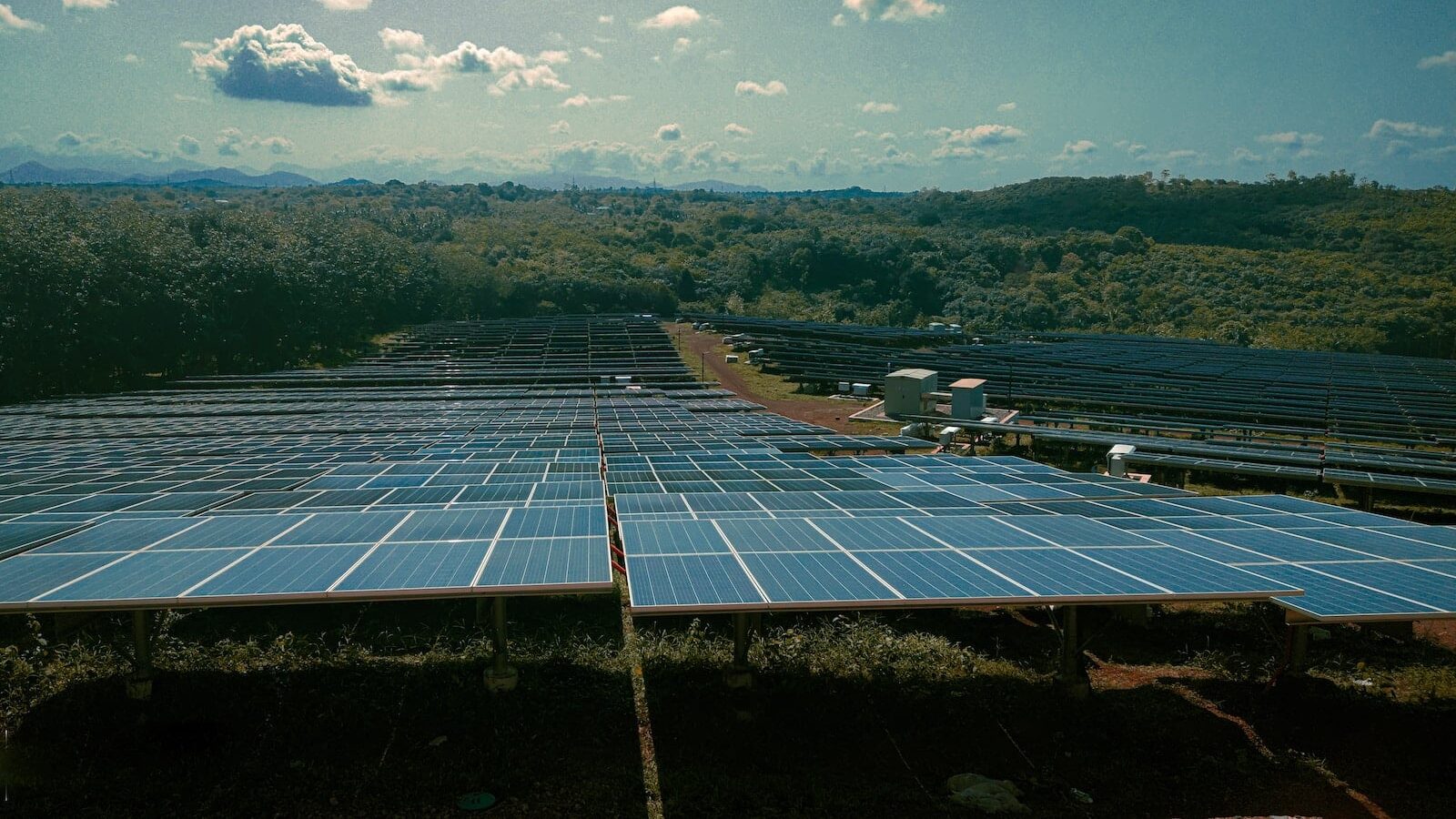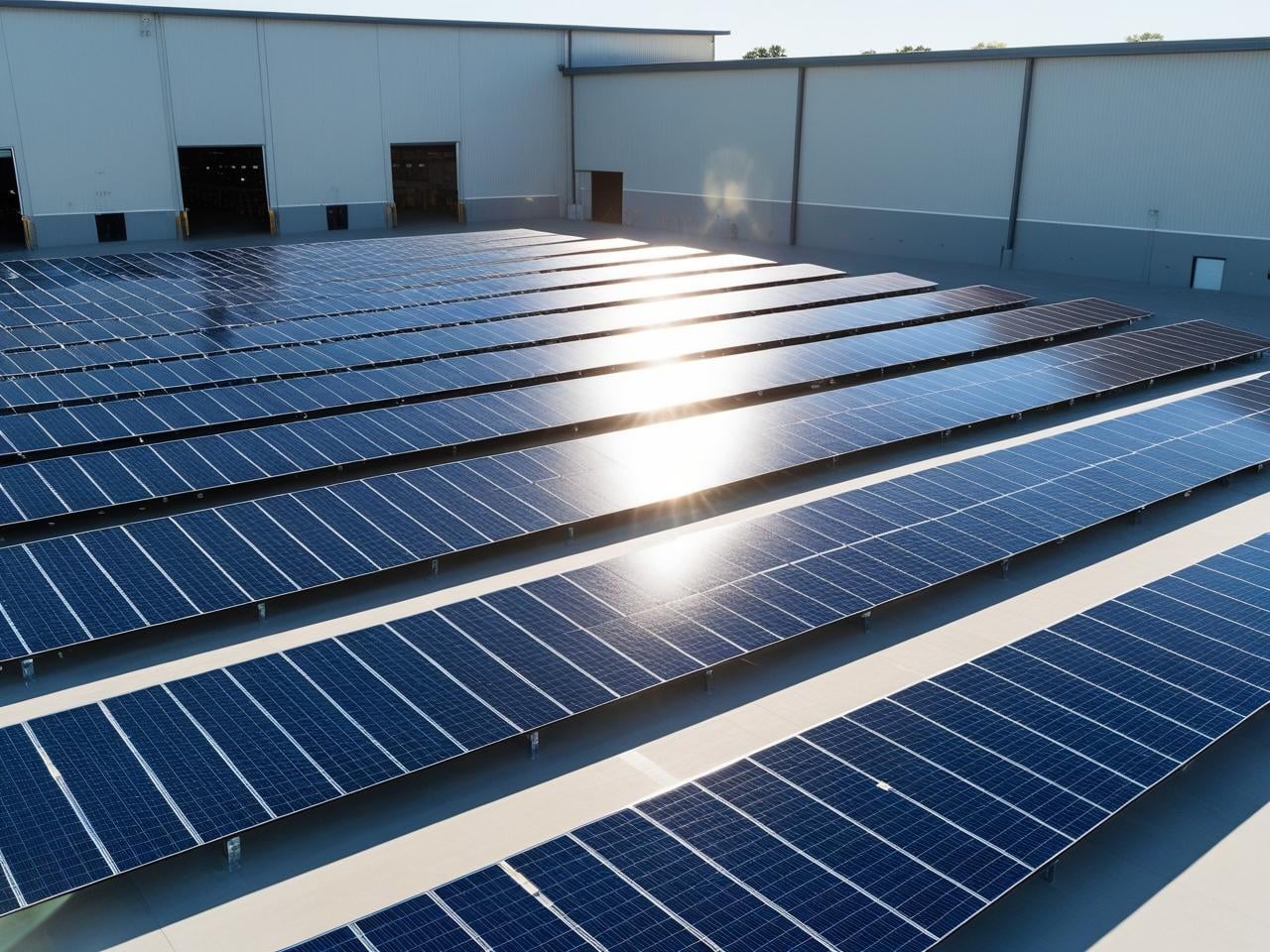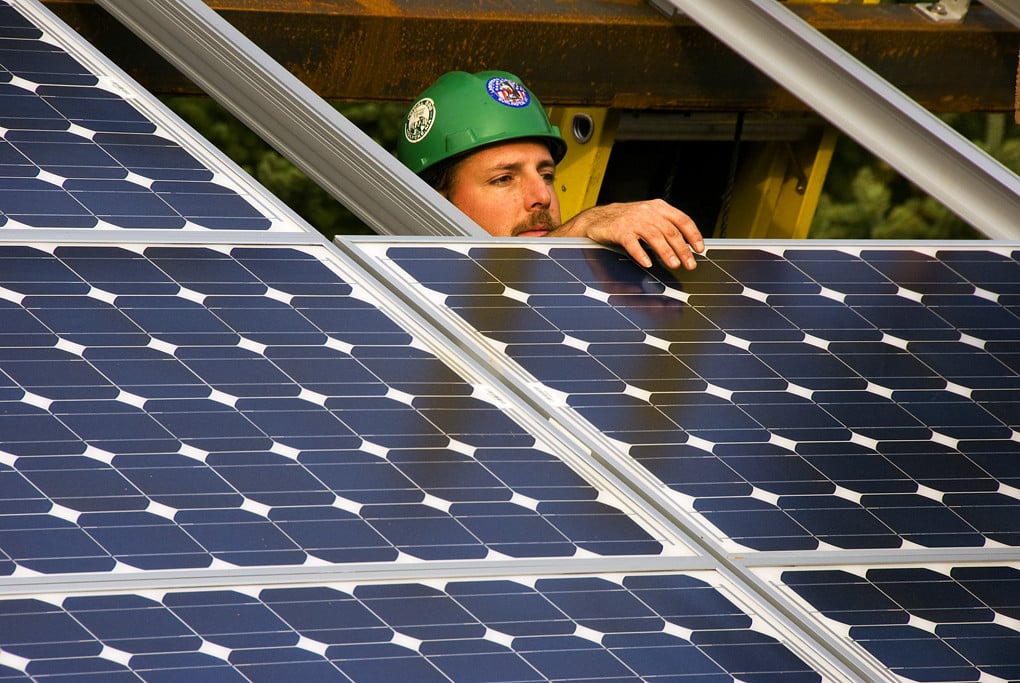
Going Solar with Sun Source Energy: A Game-Changing Move for Your Business
Why Solar is Ideal for Your Business:
- Significant Cost Savings: Transitioning to solar power can dramatically reduce your business’s energy expenses, potentially saving hundreds of thousands over the long term.
- Attractive Financial Incentives: Benefit from federal and state tax credits, rebates, and accelerated depreciation to offset initial installation costs and enhance return on investment.
- Enhanced Corporate Responsibility: Adopting solar energy showcases your commitment to environmental sustainability, improving brand reputation and appealing to eco-conscious consumers.
In an era where energy efficiency and sustainability are at the forefront of corporate responsibility, commercial property owners are increasingly turning to solar power. The shift towards renewable energy isn’t just a trend; it’s a powerful tool for reducing costs and enhancing brand reputation.
Sun Source Energy, your trusted commercial solar contractor, is here to guide you through this transformation.
Whether you’re looking to cut energy expenses or demonstrate environmental stewardship, this post will show you why commercial solar power is a smart investment and how Sun Source Energy can make it seamless for you.
Looking for a Specific Commercial Solar Niche? Check Out these Blogs:
- Top Benefits of Installing Solar for Churches: A Guide to Sustainable Savings
- Harnessing Solar for Manufacturing Companies: A Sustainable Solution
- Top Benefits of Las Vegas Commercial Solar for Your Business
- Maximize Savings with Solar Panels for Schools: A Comprehensive Guide
- Top Benefits of Solar for Your Business: Why It Matters
- Power Up Profits: Unleash the Full Potential of Industrial Solar Energy for Your Business
- Top Benefits of Enterprise Solar for Your Business
- Top Las Vegas Commercial Solar Installer: Save on Energy Costs with Sun Source Energy
- Is My Roof Suitable for Commercial Solar Panels? Key Factors to Consider
- Top Tips for Choosing Roofs for Commercial Solar Systems
- Top Strategies: How to Leverage Tax Incentives for Commercial Solar in 2025
- Nonprofit Success via Commercial Solar: Maximizing Impact and Savings
Key Benefits of Commercial Solar Power
Commercial solar power offers a multitude of advantages that extend beyond mere cost savings. By adopting solar energy, businesses can significantly lower their operational expenses, reduce their environmental footprint, and capitalize on favorable tax incentives. Additionally, solar installations can increase property value and provide a hedge against rising utility rates.
1. Reduced Energy Costs
One of the most compelling reasons to transition to solar power is the dramatic reduction in energy costs. Imagine slashing your energy expenses by up to 75% and, in some cases, eliminating your monthly electricity bill altogether. This isn’t just a pipe dream—it’s achievable with commercial solar installations.
Moreover, investing in solar power provides long-term price stability. Unlike fluctuating utility rates, solar energy offers a predictable and consistent source of power. This financial predictability allows businesses to allocate resources more effectively and invest in other areas of growth.
Solar energy costs for commercial properties typically range between $0.06 to $0.08 per kWh, factoring in the Federal Solar Tax Credit. To put this into perspective, a 45 kW solar system could save a business approximately $101,259 in electricity costs over twenty years. Businesses that choose to self-finance their solar installations can enjoy these savings without the burden of interest or lease payments, making solar power a shrewd financial decision.
2. Tax Incentives and Rebates
Financial incentives are powerful motivators for businesses considering solar energy. Tax incentives and rebates can significantly offset the initial costs of solar installations. With the potential to recover about 45% of your solar panel investment in the first year, these financial benefits are hard to ignore.
These incentives not only reduce upfront costs but also accelerate the payback period of your investment. By leveraging these financial benefits, businesses can achieve a faster return on investment and enhance overall profitability.
The federal tax credit offers businesses a 30% tax credit on the cost of solar installations, accelerating the return on investment. Additionally, various state credits and production-based incentives further enhance these savings. The Modified Accelerated Cost Recovery System (MACRS) allows businesses to depreciate the cost of solar installations over five years, creating an advantageous fiscal environment for solar projects.
3. Environmental Impact
Beyond financial benefits, installing solar panels is a commitment to corporate responsibility. By reducing reliance on fossil fuels, your company can lessen its carbon footprint and contribute to global sustainability efforts.
This shift to cleaner energy not only helps the planet but also enhances your brand’s public image. Demonstrating a commitment to environmental sustainability can positively influence consumer perception and differentiate your brand in the marketplace.
Embracing solar energy positions your business as a leader in environmental stewardship. Customers and clients increasingly prefer companies that prioritize sustainability, which can lead to increased customer loyalty and competitive advantage.
Why You Should Choose Sun Source as Your Commercial Solar Contractor
Choosing the right commercial solar contractor is crucial to the success of your solar project. Sun Source Energy stands out among competitors, offering unparalleled experience and a proven track record of successful installations.
Our team of experts is dedicated to delivering customized solutions that meet your specific energy needs. With a focus on quality and efficiency, we ensure that every project is executed to the highest standards.
With certifications such as NABCEP, Sun Source Energy is a licensed and insured commercial solar contractor that you can trust. Our excellent online reputation, bolstered by glowing references from previous clients, speaks to our commitment to quality and customer satisfaction.
We offer custom-designed integrated solar power systems tailored to meet your specific needs. From installation support to comprehensive solar system design services, including return on investment calculations and financing options, we provide a complete package to ensure your solar project is a resounding success.
Factors Influencing Commercial Solar System Costs

The cost of a commercial solar system can vary based on several factors. Understanding these elements can help you make informed decisions and optimize your investment. By carefully considering these factors, you can tailor a solar solution that maximizes efficiency and cost-effectiveness.
1. Size and Scale of Installation
The size and scale of your solar installation play a significant role in determining its cost. Larger systems benefit from economies of scale, resulting in a lower cost per kilowatt. This scalability is particularly advantageous for businesses with substantial energy needs, offering a cost-effective path to energy independence.
A well-sized system ensures that you generate enough power to meet your consumption, potentially eliminating your reliance on the grid. Accurate sizing is essential to achieving the desired financial and environmental outcomes.
2. Location and Energy Needs
Geographic location and specific energy demands are critical factors influencing solar system costs. Regions with lower sunlight may require larger systems to meet energy needs, impacting installation expenses. Additionally, tailoring the system to meet current and future energy consumption patterns ensures cost-effectiveness while addressing your business’s unique requirements.
Assessing your energy usage patterns helps in designing a system that aligns with your operational needs. Seasonal variations and peak usage times should also be considered to optimize performance.
3. Installation Complexity
The complexity of the installation site can significantly affect the overall cost. Factors such as building structure, electrical infrastructure, and necessary reinforcements for older buildings or seismic zones may require additional investment. Understanding these site-specific considerations ensures that your solar system is both cost-efficient and structurally sound.
Working with experienced professionals can help navigate these complexities, ensuring compliance with all safety and building codes. Proper planning minimizes unexpected costs and delays.
Installation Process for Commercial Solar Systems

The installation process for commercial solar systems involves several critical steps, each essential to ensuring a successful installation. Partnering with a reliable contractor ensures that each phase is handled with expertise and professionalism.
1. Site Assessment and Design
A comprehensive site assessment is the first step in the installation process. This evaluation considers solar access, structural integrity, and potential obstacles such as shading or roof conditions. The resulting design drawings provide a blueprint for installation, detailing the layout and construction requirements to maximize energy production.
Customized design solutions address the specific challenges and opportunities of your site. This tailored approach optimizes system performance and longevity.
2. Permitting and Approvals
Securing the necessary permits and approvals is crucial for compliance with local codes and safety standards. Permit drawings facilitate this process, ensuring that the solar installation adheres to all legal requirements. Legal reviews are also conducted to address any restrictions or covenants that may impact the project.
Navigating the permitting process can be complex, but experienced contractors like Sun Source Energy streamline this phase, reducing delays and ensuring full compliance.
3. Installation
Once permits are secured, the physical installation of the solar panels begins. This phase involves mounting the panels using appropriate racking systems and connecting them to the building’s electrical system. Expert installation ensures optimal system performance and longevity.
Quality workmanship during installation minimizes maintenance needs and maximizes energy production over the system’s lifespan.
Commercial Solar System Cost and Financing
Understanding the cost and financing options for commercial solar systems is essential for making informed investment decisions. With the right financial strategy, the transition to solar power can be smooth and financially beneficial.
Financing options abound, including loans and power purchase agreements (PPAs), catering to a variety of business models. The federal tax credit and state rebates further offset system costs, making solar energy accessible to businesses of all sizes.
Working with financial experts can help you select the best financing option that aligns with your financial goals and operational needs.
Choosing a contractor that offers competitive pricing and has negotiated favorable terms for solar modules, inverters, and other equipment is vital. Sun Source Energy is committed to providing complete custom-designed solar power systems at the most competitive prices.
Ensuring a Smooth Installation Process
A smooth installation process is crucial to the success of your solar project. Clear communication with your contractor and establishing a project timeline are essential. Ensuring that your contractor has obtained all necessary permits and adheres to safety protocols is equally important.
Regular progress updates and open lines of communication help address any concerns promptly. This collaborative approach ensures that the project stays on schedule and within budget.
Hiring a project manager to oversee the installation process can further streamline operations and ensure a smooth handover of the system. Sun Source Energy offers ongoing operations and maintenance services to support your solar investment long after installation.
Best Practices for Working with a Commercial Contractor
Working with a reputable solar contractor is key to the success of your project. Researching the contractor’s reputation and experience in commercial solar projects is a crucial first step. Ensuring that the contractor is licensed and insured is also essential for peace of mind.
Requesting detailed proposals and understanding the scope of work helps set clear expectations. A transparent contractor will provide comprehensive information about timelines, costs, and system performance.
Sun Source Energy offers custom-designed integrated solar power systems and provides comprehensive installation support. Evaluating the contractor’s ability to provide a comprehensive warranty and support package is also important. Clear communication and establishing a project timeline ensure that expectations are met.
Consider hiring a project manager to oversee the installation process. Sun Source Energy provides ongoing operations and maintenance services to support your investment and ensure long-term performance.
Contact Us Today
Transitioning to solar energy is a strategic move for businesses seeking to reduce costs, improve sustainability, and enhance brand reputation. Sun Source Energy, your trusted commercial solar contractor, is here to guide you every step of the way. By understanding the benefits, costs, and best practices associated with commercial solar installations, you can make informed decisions that benefit your business and the environment.
Ready to harness the power of the sun for your business? Fill out the form below to schedule a consultation and discover how our customized solar solutions can transform your energy strategy and drive your business forward.
Frequently Asked Questions
What are the main benefits of installing commercial solar panels?
Installing commercial solar panels offers significant reductions in energy costs, access to tax incentives, and the ability to lower a company’s carbon footprint, contributing to environmental sustainability. A solar power system is a smart investment for businesses looking to save on energy costs and promote environmental responsibility.
How much can a business save by switching to solar power?
Switching to solar power can lead to substantial savings, often up to 75% on energy costs. For instance, a 45 kW solar system can save a business around $101,259 in electricity costs over 20 years.
What financial incentives are available for commercial solar installations?
There are various financial incentives available for commercial solar installations, such as the Federal Investment Tax Credit, state rebates, MACRS, and local incentives and grants, which can help reduce the overall cost. These incentives provide significant opportunities for businesses to save on their solar investment.
How does the size of a solar installation affect its cost?
Larger solar installations benefit from economies of scale, leading to a decrease in cost per kilowatt as the size increases, making them more cost-effective per unit of energy produced.
Are there financing options available that don’t require a large upfront investment?
Yes, businesses have options such as solar leases, PPAs, loans, and grants that allow them to install solar panels with little to no upfront costs. These financing options provide flexibility for businesses to adopt solar energy.

